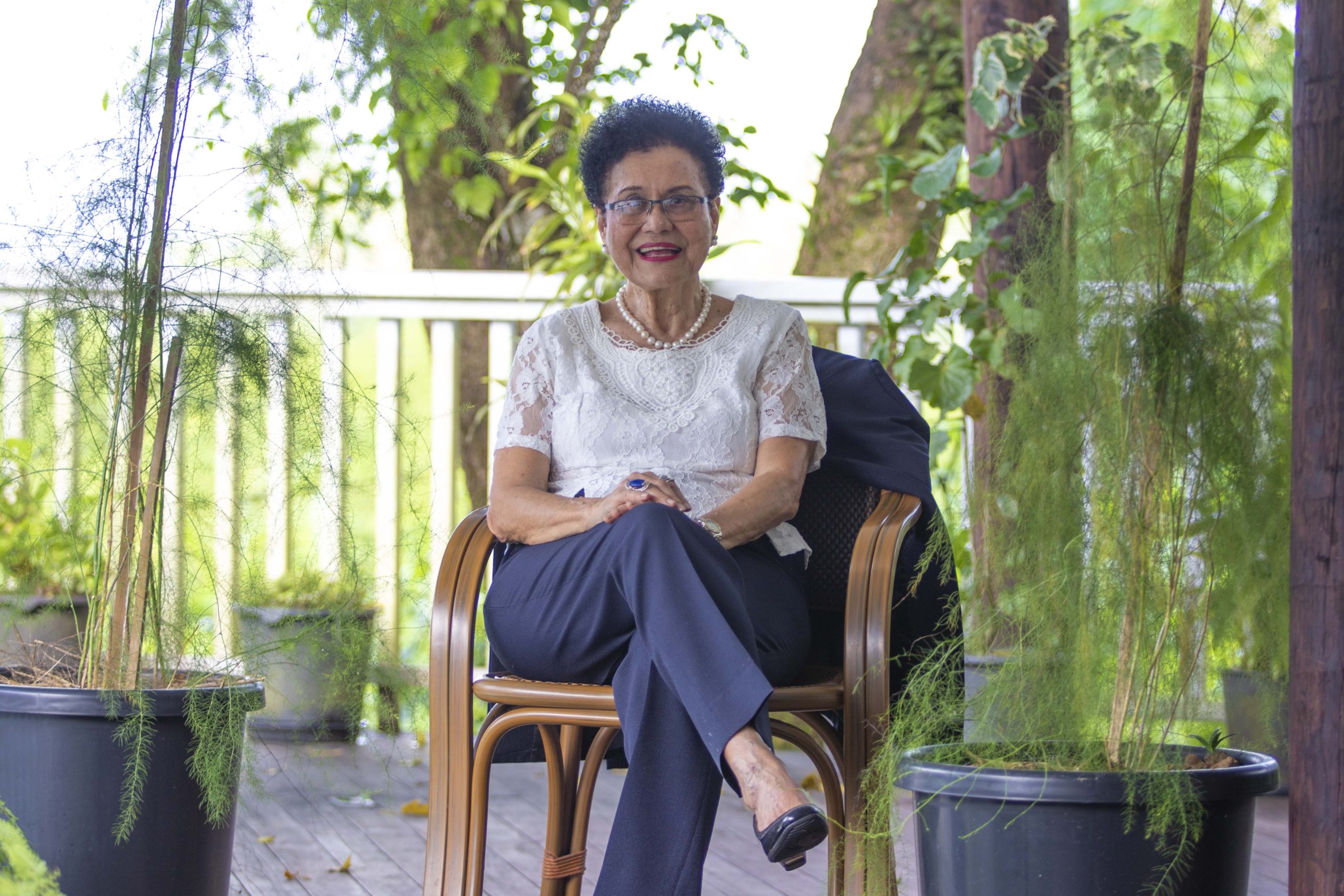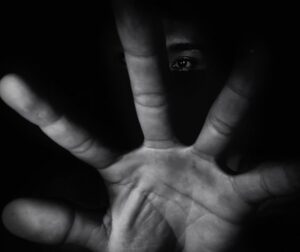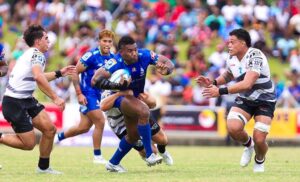Once upon a time, the manufacture and supply of bread in Fiji – available only in either the iconic long loaf or the sliced square loaf varieties – was controlled by twenty or so Chinese bakeries scattered across the country.
Back then, bread wasn’t quite the staple food that it has since become – thanks, to the enterprising instinct of a 41 year old Fijian nurse who decided to return home from Australia and change the course of her career and life by venturing into the bread making business to earn her crust.
Forty years later and looking 81 years young, Dr Mere Samisoni has no reason to regret opening Suva’s first Hot Bread Kitchen (“HBK”) in 1982. She had to overcome regulatory hurdles over 5 years to make that happen. By 2006, more than 30 HBK shops had sprouted throughout the country to transform the entire landscape of Fiji’s bakery industry.
Mere, however, is no mere revolutionary. And bread was a rare feature in the daily menu of meals available in Mere’s mother’s kitchen during her childhood. It was a luxury and simply unaffordable.
Mere’s mother and mantra
Hailing from Lomaloma village on the island of Vanuabalavu, Mere Tuisalalo was born and grew up with her 5 siblings in the colonial capital town of Levuka. Her tender age didn’t excuse her from performing various chores assigned by her mother for the efficient running of their household.
Mere’s daily tasks were to collect and stack firewood every afternoon; and help prepare each morning’s breakfast. Getting breakfast ready meant she had a better chance of grabbing the lion’s share from the food table. She didn’t mind the task because of that prospect.
Being her mother’s namesake (whom she affectionately refers to as Mere Levu or “Big Mere”) didn’t entitle her to any special privileges. What she inherited from Big Mere was the maternal vault of ethical values that have fashioned how she lives, works and thinks.
Mere’s perseverant resolve is founded on the principle that no task is too hard; and no obstacle so insurmountable. There is also, she firmly believes, a silver lining in every cloud. Her path-breaking career in business (punctuated with occasional setbacks) and acclaimed status as the nation’s pioneer in leveling the business field for women bear testimony to her successful pursuit of that ideal. She has been named Businesswoman of the Year not once, but thrice!
Mere accredits all her success to her beloved late mother: “I had to graduate from the school of hard knocks at the University of Big Mere first – long before I obtained my nursing qualifications, my undergraduate and postgraduate degrees; and my doctorate in business administration.”
Big Mere was a preacher’s daughter of European, iTaukei and Tongan ancestry. Mere Tuisalalo Fonolahi (her maiden name) was betrothed in marriage to Ratu Keni Naulumatua, the Turaga na Rasau. Privileged by chiefly birth to have a proper education, Ratu Keni escalated the ranks of the colonial civil service to become a postmaster.
Ratu Keni was stationed in Levuka at the time of the divorce of Mere’s parents. Big Mere was left with the custody and care of their 6 children. Tugging on to her mother’s skirt as they moved out of the quarters remains etched in Mere’s memory of that day.
Big Mere didn’t let the breakup break her stride. She kept the children fed and together by earning a living from sewing and doing all kinds of odd jobs.
Mere reflects: “she was resolute. To work is to pray. We had to work from the time we woke up in the morning until it was time to go to bed. It was all based on a strong biblical foundation.”
Bred on a diet of hard work and religion, young Mere (was by her own account) strong and hardworking as a child. Her circumstances didn’t allow her much scope for academic excellence then. But she was athletic; and perhaps even sassy. Mere rose above her situation in life to stand up for herself and others. “I’ve never been frightened of bullies,” she says.
Nursing and marriage
At 17, Mere decided that Levuka was too small for her and worked to find passage on the steamship MV Tofua to a new life in New Zealand. She travelled on her own, did not have a passport and stayed at the home of her older sister, Marianne, while she studied to become a nurse.
“I had a strong sense of empathy. Caring for other people came naturally to me from my mother,” Mere says.
It was in NZ that she met Jimione (Jimi) Samisoni, a medical science student. Upon her return to Fiji, they would date, get married and eventually move to Australia. Before they relocated, Mere worked in the maternity ward of Suva’s Colonial War Memorial Hospital.
“We got married here in 1961 at the Centenary Church and had our wedding dinner at the New Peking Restaurant. We couldn’t afford anything else,” recalls Mere.
Young Dr Jimi soon landed himself a scholarship to begin postgraduate studies in Queensland. This kept the Samisoni family studying and working in Australia from 1962 to 1979.
Very much her mother’s daughter, Mere couldn’t sit idly at home.
She seized the opportunity to work evening and weekend shifts at suburban hospitals while nurses were on strike. Her nursing credentials and experience allowed her to be promoted quickly. Mere longed, however, to work in rural hospitals serving Australia’s Aboriginal communities.
“They felt neglected and distrusted outsiders. I had to work really hard to build their trust. It took several months but once they trusted me, they adored me!”
Breadwinner’s investments
Mere reveals: “we had no money when we arrived in Australia. We had just got married. Jimi was a poor student. I needed to work to supplement his meagre stipend.”
She was enticed to invest their savings in buying property.
“We decided to buy ourselves a Housing Commission home which the government was providing for the influx of young Europeans migrating Down Under. It was affordably priced at AU$ 2,500, I thought, and within our ability to finance and repay.”
Mere worked to beautify the garden and develop their first humble home. When Jimi was recruited as a lecturer at the University of Queensland, the couple found reason to move somewhere closer to its campus and the opportunity to flip the house.
“I had learnt to sew from my mother so I sewed new curtains, did the house up nicely and sold it for AU$ 10,000. Then I bought another home in a nicer place in suburban Kenmore. It cost me AU$ 10,500. When we left, I sold that for AU$ 68,000.”
It was there that Mere discovered bread. As the smell of each fresh batch wafted into her home, the young mother grew curious. She did not just want to buy the bread, she wanted to know how it was baked and how the bread business operated.
Her nose led her to the bakery of David Bedwood in Kenmore Village Shopping Centre.
“David came from 200 years of bakery blood in his veins. I managed to persuade him to come to Fiji with us and become our business partner. We knew nothing about baking. I’m a manager and I know how to manage money and people – that was my strength.”
Having left Fiji as a nursing graduate, Mere would return after more than 17 years away, a nursing manager. She is the first Fijian nurse to become a Fellow of the College of Nursing Australia (FCNA). However, Fiji’s Ministry of Health policy about promotions at the time dictated Mere would start on the floor as a junior nurse, which she was not willing to do.
That’s how HBK was born.
With Jim returning to a medical career in the public health system and, thereafter, the Fiji School of Medicine which he would eventually head, Mere became restless without a job. The prospect of opening a bread shop weighed heavily on her ambitions.
There was a lot of skepticism and red tape leading to long delays, forcing David to return to Australia. Mere remained undeterred.
After a few false starts with local financing, she eventually found partners and some good bakers to open HBK’s first bakery in 1982, funded with $6,000 capital and a loan from ANZ Bank.
The first day was a huge success. The plan was to open for two hours to test the market but they ended up opening until 10 pm as excited people stood in long queues to sample its freshly baked products.
Having confirmed that she was now on to a good thing, Mere’s ambition was irrepressible.
Matriarch’s empire
She soon opened another outlet in Suva while researching and market-testing other areas for opportunities. A few more HBKs sprung up – and although she had to close some branches and open others, eventually the number of outlets multiplied to the 27 they’ve got today. More are opening soon.
“People just wanted a slice of that bread. The long loaf, of course, was the most popular.”
Mere was always innovating and trying new things – including the introduction of HBK’s iconic cream bun, but she makes sound business sense by insisting on profit margins.
“One of the things we did that nobody else did was to make sure that for every mix, it had to be measured and priced so that we know what went into production; and we knew what to expect at the end of the day.”
Her business model operated on the principle of decentralising power. Each outlet had its own manager and sales people.
Over the years, the company has toyed with different finance and ownership structures – the latest being the idea of initial public offerings of HBK’s shares.
At several points of the company’s history, HBK had hired corporate leaders to drive the company forward. Today, however, it is completely run by family – under the leadership of Mere’s son, John Samisoni.
“I am training John to take over from me. I had the family more involved at operational and board levels. Then I found that it was too much family and I needed to get in some corporate honchos, so we co-opted some. Then I saw that corporate model wasn’t working ideally for us.”
“As a leader, you’ve got to watch the motives. So I have brought it back to family.”
HBK beyond Mere will be about delegating leadership to the children and the matriarch’s priority is to ensure those coming in have the necessary qualifications, and nurture the same spiritual principles and values that inspired her own success.
“The children have got to understand the vision and mission of the company.”
“Any company can be unique because ultimately, the question is – what are the needs of the company? For me the needs of the company spring from its nature as a family business. The business has got to be there for the family, it cannot just be about finance.”
Her attentiveness to those kinds of concerns, among others, made HBK the ‘Female Employer of Choice for Women’ at the 2015 Women in Business awards.
HBK has as many women as men working in the company. Mere is proud to have on her staff people who have worked for her through several decades – some for as long as the company has been in operation. Often, children of staff have also joined HBK.
The octogenarian still visits the office daily to ensure that the values of spiritual strength and hard work instilled by Big Mere remain the main ingredients for HBK’s classic bread recipes.
Editors Note:
This story was published in Fiji Plus Magazine in August 2018.












